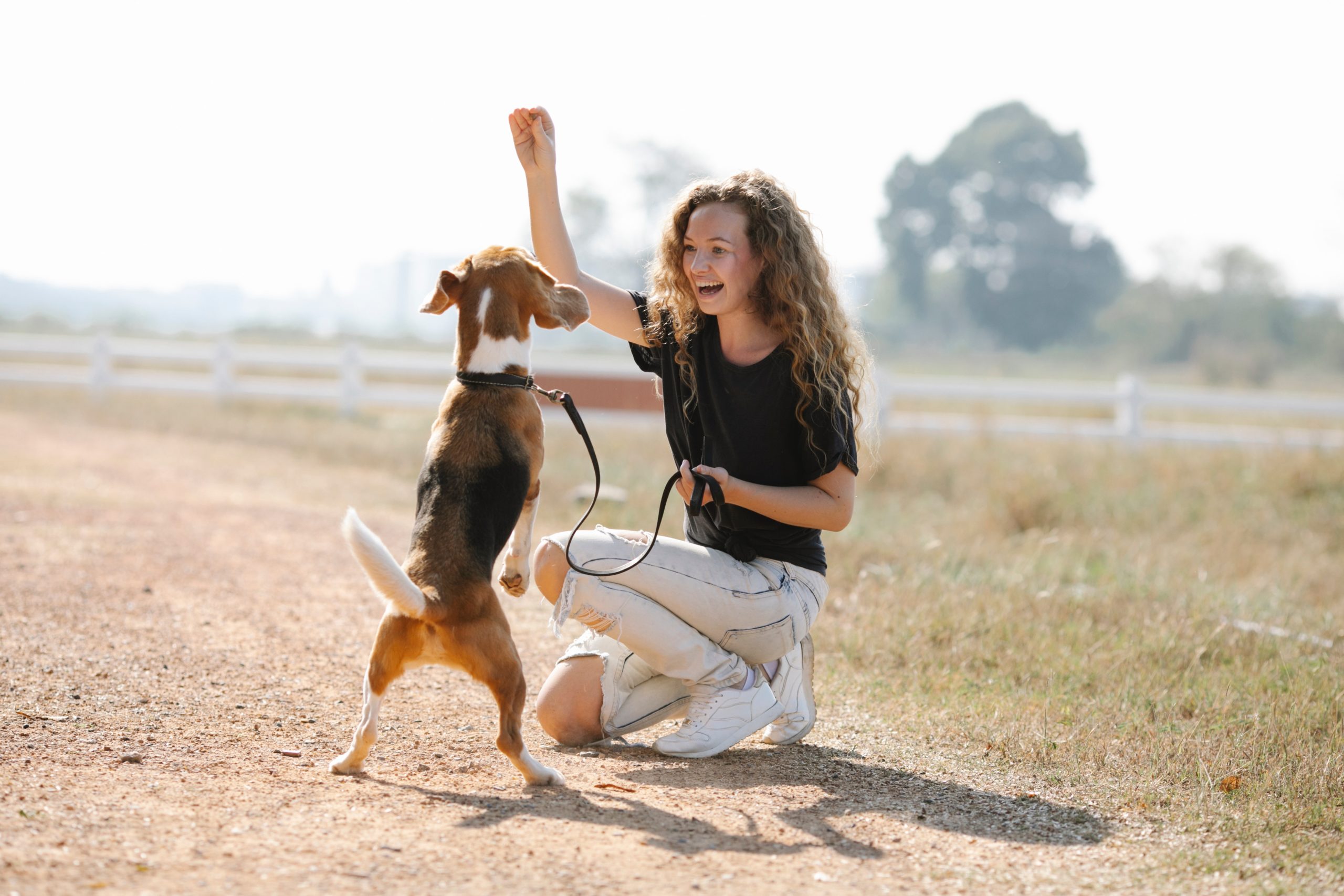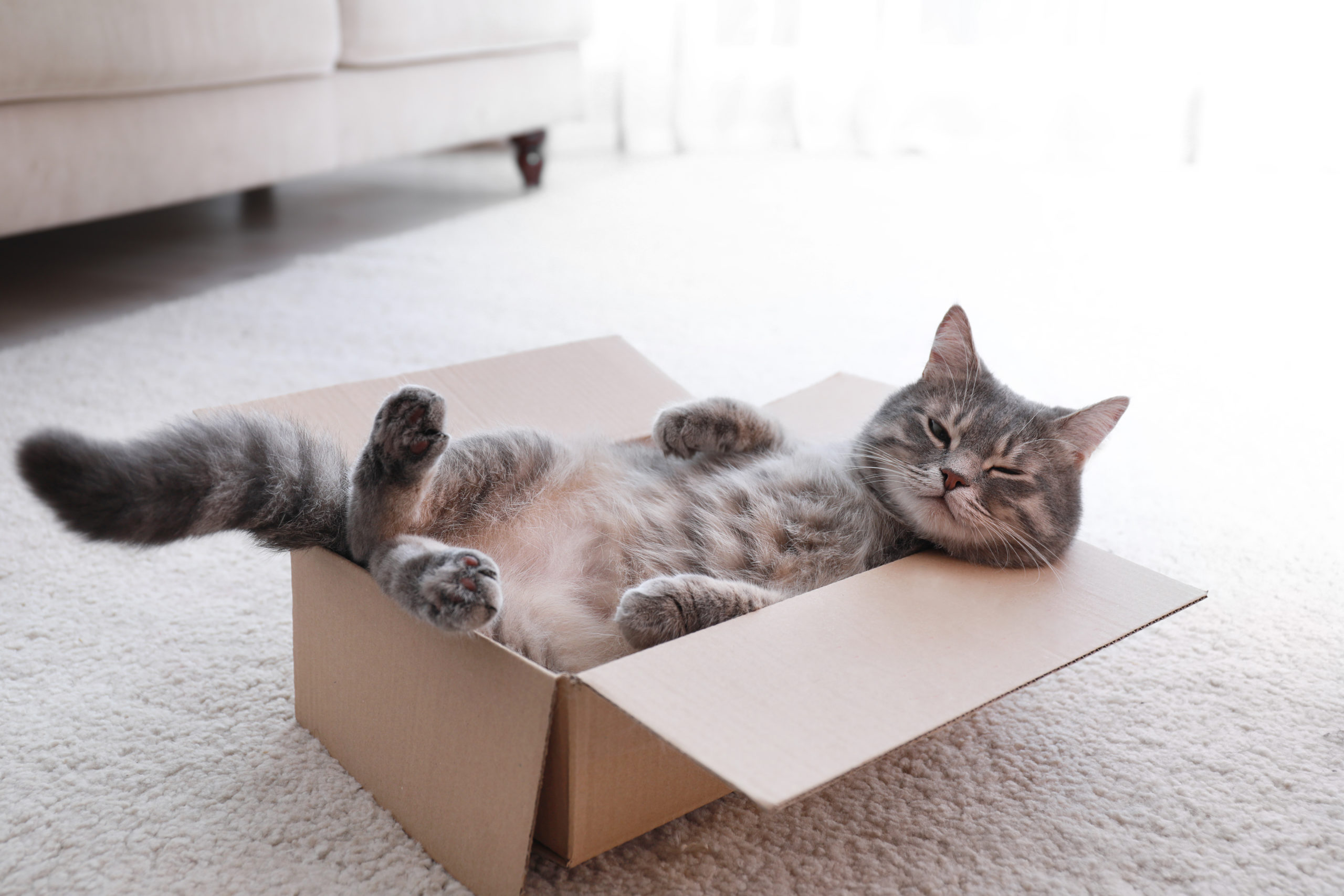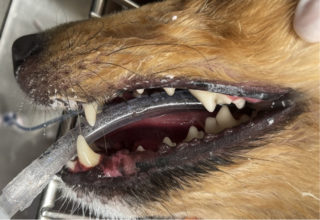Just like every other member of the family, your petís mental health is important for their long-term wellbeing. If your pet is anxious, bored or without much stimulation, over time it can seriously affect their physical and mental health...
Just like every other member of the family, your petís mental health is important for their long-term wellbeing. If your pet is anxious, bored or without much stimulation, over time it can seriously affect their physical and mental health and over time their relationship with their owners.Luckily, there are some simple changes you can make to your cat or dogís everyday experience that can help them live a happier and healthier life. Here are some of the expert pet enrichment suggestions from the team at Clyde Vet Hospital Ė and some of the signs you need to watch out for in your pet.
How to tell if your pet is unhappy
Nobody knows your pet like you do, which means youíre the perfect person to spot whether or not they need a little help. Even small changes in behaviour can point to a bored or anxious pet that needs more stimulation in their life.
Tips to help your pet live a happier life
Clyde Vet Hospital has a number of tips and tricks to help your furry friends get back on track. These pet enrichment ideas are a great place to start when trying to overcome any pet anxiety in your home.
Signs that your dog may need enrichment
†

Dogs that are bored or not stimulated enough need to find an outlet to relieve their emotional stresses and pent-up energy. This is typically the case in younger dogs that have high energy levels. Signs to look for can include:
Excessive barking, sometimes for no specific reason: this may be be due to relieving boredom or your pet may be looking for interaction with you via a response to the barking.† Chewing or excessive licking of objects (eg. shoes, couches, kids toys, small household items / decorations): the reason for this behaviour is similiar to why dogs bark however there is a danger that accidental ingestion of these objects can occur. Ingestion of foreign objects may cause abdominal pain and in some cases result in the object becoming stuck in the gastrointestinal tract which may require potential surgical intervention. Excessive digging: digging is a natural evolutionary pass time for dogs as in the wild they will bury prey / food and come back for it later. However when this becomes excessive and results in destruction to lawns, garden beds, vegetable patches it can become problematic. Uncharacteristic aggression with family members or strangers: This may be due to overstimlation and no channeling of pent up energy or frustrations. Increased pacing: again this is often due to boredom and pent up energy but please be mindful that may not be the only reason for this behaviour. Dogs in pain or even with neurological disease may also present with this problem.† Increased quietness or depression: older dogs that are more settled in their routine may show boredom as increased quietness and lethargyHow to enrich your dogís life
Most dogs are incredibly active animals, especially high activity level and working dog breeds. Working dog breeds are also highly intelligent and thus can get bored and frustrated easily if their mental needs are not being met.†
As such dogs require regular exercise. Being cooped up in a small backyard all the time can be boring and can result in behavioral problems developing; like those mentioned above. Behavioural problems can be difficult to break if they become a long term habit.†
Dogs are pack animals and as such they require other people and animals to interact with.†
Tips for dog enrichment:†
Daily walks: Dogs should be walked at least once a day (twice a day for active, high energy breeds). Often going to the park for a walk and a play at ball in off lead parks can be stimulating.† Also try new and unique locations (eg. beach) and places to stop along the way for a break and a sit down may also prove rewarding. Puzzles, toys: puzzle toys that require problem solving such as mazes where a treat can be hidden (eg. Kong? toys) are a great way to keep dogs occupied and as a bous give a reward for their effort if they get the treat out. Frozen treats: Making your own frozen ďpupsicleĒ treats is a great way to reward your pet as well as keeping them stimulated. As always please consult your veterinarian if you are concerned about potential toxicity in any of the ingredients you are using. Arrange a play-date with another dog: Ė join a local dog group if you donít already know any other dogs nearby! Owner / dog playtime: sometimes it is you the owner and your time and interaction that will boost your pets mood. So take that extra time every day, even if it is just an extra 5 minutes to have a play and run around with your dog.Signs that your cat may need enrichment
Whether theyíre indoor or outdoor, your feline friend will still exhibit the same basic behaviours if theyíre generally unhappy. Signs to look for can include:
Excessive vocalisations: cats, especially young cats will vocalise in order to communicate. This can become excessive if they are demanding something from you as an owner (eg. food, attention) Clawing / scratching furniture: Cats have evolved to scratch their claws on trees to shed the excess nail layer and keep them sharp for hunting. This also serves as a territorial scent mark for other cats in the area. Unfortunately cats do not understand that your chair / couch leg is not a tree! Excessive grooming: this can be due to other problems such as infections and parasite burden and pain but in the context of behavioural anxieties it can be due stresses that are misdirected as the cat overgrooming Extreme clinginess to you / other family members: There is a misconception that cats are not as affectionate as dogs but this has recently been disproven that cats are indeed as invested in their owners if not moreso than dogs. As such cats if they are sick or stressed will seek comfort and reassurance from their owner. Excessive sleeping: this can be due to illness but may well also be a clue that they are not as interested in or stimulated by their surroundings. Frequent hiding: Again this can be due to illness but also due to stressTips for cat enrichment:
Cats donít require the same level of exercise as dogs in order to feel comfortable and happy, but they do require lots of mental stimulation and play (especially if theyíre an indoor cat). This can include:
Toys: these can include soft toys (with or without pull string motors for movement), feather wands and laser pointers. Toys that encourage chasing and hunting behaviour are best as they keep the cat stimulated as well as potentially wearing out high activity level cats! Keep in mind that changing over new toys every couple of months is important as cats can get tired of the same toy long term. A good trick is to put a small number of toys in storage and rotate them every couple of months. Scratching posts: A few strategically situated scratching posts around the house will still enable the cat to mark their territory, keep their claws healthy and also save your furniture! Hiding places and high perches: Cats are evolutionary both predator and prey and as such they like to be high up above everything where they can survey and assess from a safe distance as well as having dark places to hide if they feel threated. Regularly updating their environment with new objects (eg. boxes, wall shelf / perch, cat towers and stations) are a great way to keep them stimulated and comfortable. Cat grass: Cats eat grass as it aids in digestion and general health. Having a cat grass plantar in the house that the cat can graze on is a great way to keep them happy & healthy. Cat grass is available as seeds and the fully grown grass from most nurseries. Owner / cat playtime: sometimes it is you the owner and your time and interaction that will boost your pets mood. So take that extra time every day, even if it is just an extra 5 minutes to have a play and hide and seek around with your cat. Giving your cat multiple different ways to express themselves and their instincts is the key to making sure theyíre sufficiently stimulated.
Your local pet experts
If youíve noticed any challenging or concerning behaviour in your pet and want to make sure that theyíre okay physically or mentally, then donít hesitate to book a visit to the expert veterinarians at Clyde Vet Hospital. We can help you figure out whatís holding your pet back and offer a range of different solutions for a happier, healthier and longer life with you.†
Get in touch with our friendly team at (03) 9052 3200, or make an online booking at any time on our website.










